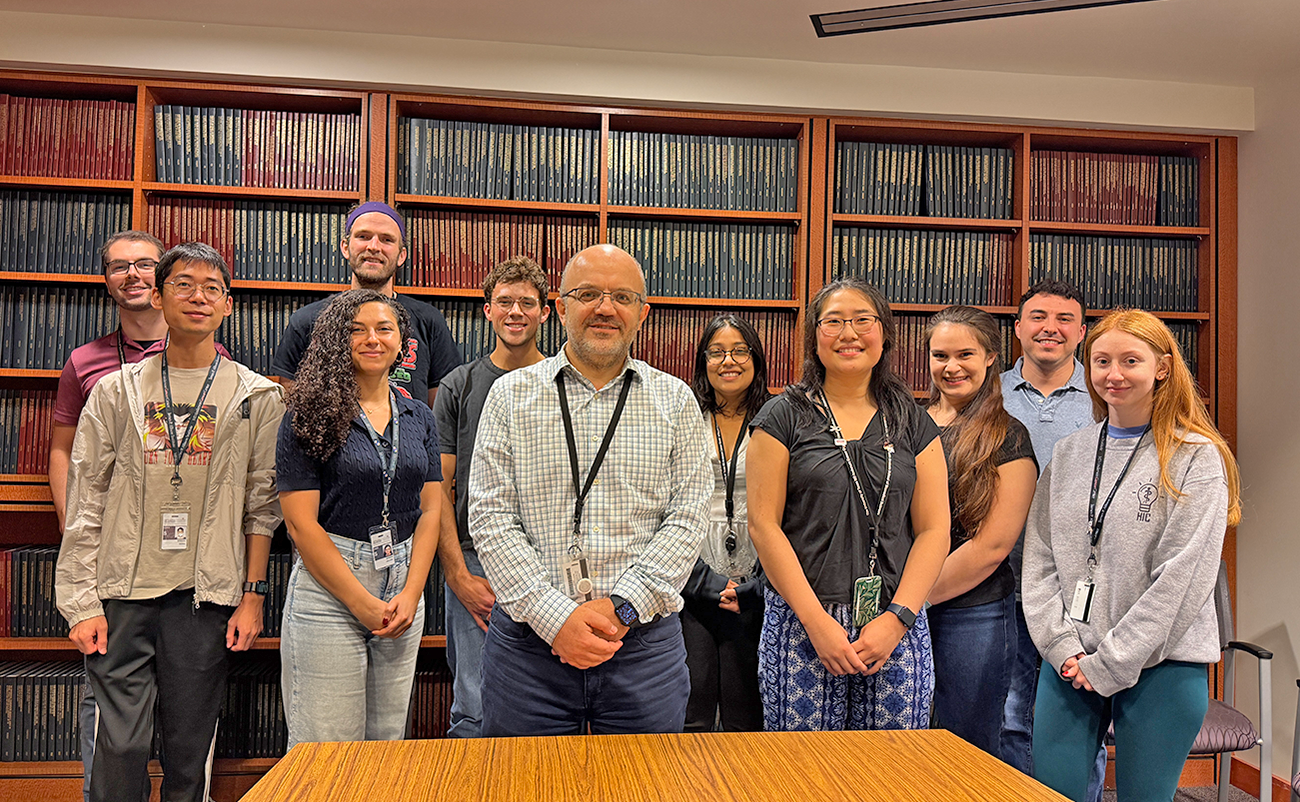Meet the Faculty: Wassim Chehab, PhD
October 08, 2025 By: Leigh Robinson/The University of Texas MD Anderson Cancer Center UTHealth Houston Graduate School of Biomedical Sciences

Advocating for excellent learning
Director of Curriculum and Faculty Development Wassim Chehab has a passion for helping students reach their full potential. He works to ensure that courses are designed to maximize learning, and he actively encourages students to take advantage of opportunities such as scholarships and fellowships. With a deep commitment to academic excellence, his collaborative spirit and PhD expertise serve him well in this role. Outside the office, you might find him thriving in fatherhood as a proud dad or relaxing with a good book.
What do you do day-to-day in your role?
I oversee the course review and approval process at The University of Texas MD Anderson Cancer Center UTHealth Houston Graduate School of Biomedical Sciences (GSBS), support faculty development initiatives, manage Teaching Assistant policies and placements, and advise Master of Science (MS) students. I also oversee the internal scholarship and fellowship programs, working to ensure fair and thoughtful distribution of resources. In addition, I serve as one of the co-directors of the Graduate School Core Course, working closely with my co-director colleagues and leaders to continuously improve the course’s structure, content, and student experience. My daily work centers around collaboration with faculty, students, and staff to support academic excellence and student success.
What is one of the major projects you are working on?
One project I’m especially excited about is the introduction of the?Being a Resilient Scientist?series into the Core Course this Fall. Originally developed by the National Institutes of Health (NIH) Office of Intramural Training and Education (OITE), we’ve adapted the content with slight modifications to best fit the needs of our students and the structure of our course. The series is designed to help students build resilience, manage stress, and develop the mindset needed to thrive in graduate school and beyond. We’ve also recruited a group of outstanding faculty to lead these sessions. This initiative is part of a broader effort to ensure that our students are supported not only academically, but also in their personal and professional development.
What excites you the most about working at the Graduate School?
The opportunity to directly shape the academic and professional journeys of our students. Whether I’m helping a student navigate a challenge, working with faculty to enhance a course, or rethinking how we support teaching and mentoring, there’s always a sense of purpose behind the work. GSBS is a place where people care deeply about education, and I appreciate being part of a community that’s constantly trying to improve how we support both students and faculty.

Chehab (center) pictured at a recent Kopchick Symposium planning meeting with some of the 2024-2025 Kopchick Fellows (l to r) Skylar Gay, Pengju Gong, Dounya Jalloul, Andrew Gillard, Peyton High, Richa Nayak, Kaylene Lu, Chystine Gallegos, Stephen Farmer, and Mekenzie Peshoff.
What are some of your hobbies outside of work? How do you relax?
I enjoy spending time with my wife and our two young children: a boy and a girl. They keep life busy and fun. As a family, we love traveling and exploring new places together, whether it’s a trip abroad or discovering something new closer to home. I’m also passionate about education more broadly and often find myself reading about leadership, mentorship, and how to create better learning environments. When I need to relax, I usually unwind with a good book or go for a walk to clear my head.
What skills do you find most valuable in your work?
Listening carefully, thinking strategically, and communicating clearly are essential in my role. Whether I’m advising a student, supporting faculty, or coordinating a large initiative, it’s important to balance empathy with structure and follow-through. I also find that adaptability and a collaborative mindset go a long way. Much of my work involves bringing people together across roles to solve problems, improve processes, and support student success.
What was your journey to the Graduate School?
I began my academic journey with a bachelor’s degree in chemistry, drawn early on to the curiosity and problem-solving at the heart of scientific research. I went on to earn a PhD in biochemistry and molecular biology, where my research focused on enhancing model organisms to improve their responses to environmental stress. After completing a postdoctoral fellowship at UC Davis, I joined Rice University as a Research Assistant Professor. While there, I was involved not only in research but also in mentoring and advising students, experiences that gave me a deeper appreciation for academic administration and working collaboratively with both students and faculty. That perspective led me to pursue a role where I could focus more intentionally on supporting education and academic development. I joined GSBS about four years ago, and it’s been a deeply rewarding move.
What is your favorite memory while working at the Graduate School so far?
One of my favorite memories was seeing a student who had been struggling early in their journey go on to win a major internal fellowship. I had worked closely with them on refining their application and navigating some academic challenges, and watching their confidence grow over time was incredibly rewarding. Moments like that remind me why I do this work, supporting students behind the scenes and seeing them succeed.
Anything else you would like to add?
Just that I feel fortunate to be part of a community that values both excellence and compassion. Working at GSBS allows me to contribute in ways that feel meaningful, whether that’s improving systems, supporting faculty, or helping students succeed. It’s a place where small efforts can have a big impact, and I’m proud to be part of that.







